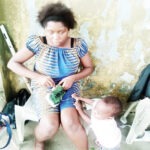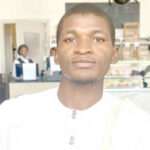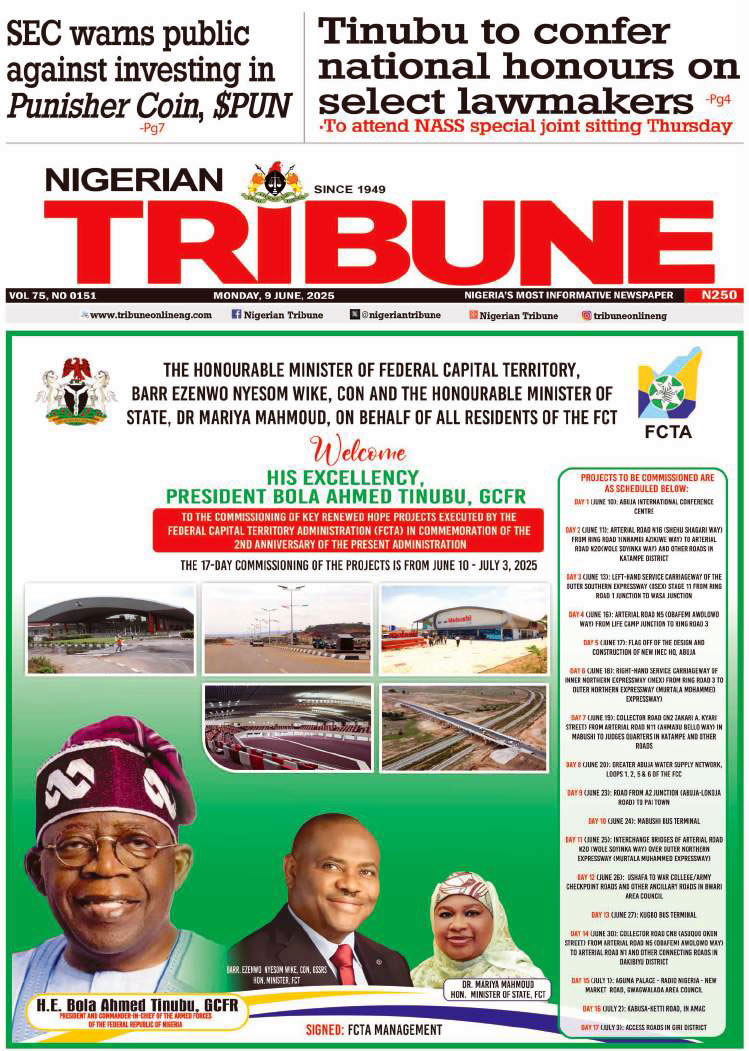Edidiong Amos is a geographic information system (GIS) and remote sensing expert, and the founder and CEO of Cizoti Nigeria Ltd. As the founder of the non-governmental organisation (NGO), Geoinitiative for Women Empowerment, she trains and mentors women on skills that offer them a competitive advantage to thrive in the geospatial industry. In this interview by KINGSLEY ALUMONA, she speaks about her work and how GIS and remote sensing can help salvage Nigeria’s security and food crises.
A few decades ago, Geography and Remote Sensing was not a course many young girls would ordinarily study, but you did. What inspired you to study the course?
I would say that I studied the course by circumstances (laughs). It is a long story. My initial inclination was towards engineering, but I was guided by the then Head of Department, who was also a woman, and her guidance and achievements within the academia greatly inspired me and played a big role in my decision to study Geography and Remote Sensing. Let me quickly add that after two decades, this woman was the chairperson at the launch of my NGO for women empowerment in the geospatial sector.
After graduation and national service (NYSC), what was life and work like? Was entering the labour market easy or difficult for you?
After graduation and NYSC, I did not actively seek employment. However, I invested my time in studying additional languages (French, Chinese, Spanish, and Igbo). This kept me busy until I enrolled for a master’s in 2011. Four years later, I founded my company.
Getting into the industry was not difficult per se because I started as an employer of labour. On the other hand, no one prepared me for the daily hurdles I encountered on the job (laughs), especially being the first woman in Nigeria to own a GIS/remote sensing firm in a male-dominated industry.
You are the CEO of Cizoti Nigeria Ltd. What is your Cizoti story and how has the journey been so far?
During my master’s programme, I developed a prototype system to locate viable hospitals for emergency response in the Federal Capital Territory (FCT). However, access to geospatial data was a huge problem, and the few available ones were not spatially referenced. So, I had to generate my own spatial data. With this experience, I nursed the idea of generating geospatial data for a fee, while saving researchers’ time in the field. This idea birthed my company, Cizoti Nigeria Ltd.
My journey so far has been very rewarding, and it embodies the essence of entrepreneurship and innovation, where I turn challenges into opportunities. For instance, in 2017, I developed Nigeria’s premier one-on-one tutor-led eLearning platform, in response to the high demand for GIS training nationwide.
What is your current job description at Cizoti? Could you tell us about the latest project you handled?
As the CEO, I navigate the multifaceted landscape of our company. My responsibilities encompass overseeing the day-to-day operations, including coordinating projects, engaging with clients, and making decisions. The latest project is the free Digital Skills Development Programme (DSDP) with funding support from the World Bank through the Federal Ministry of Education. The project tackles the digital skills gap in market demand and supply, particularly among unemployed youth, women, and people with disabilities. Most importantly, the potential of remote work enabled by these digital skills and the focus on empowering underserved groups to thrive in the digital age is truly inspiring for me.
Your profile says that you consult for government organisations and the World Bank. Tell us about your work or projects with the World Bank.
In 2020, Cizoti developed maps for the World Bank-funded survey of all business establishments in the 774 local government areas (LGAs) in Nigeria and also developed the flood portal for Ibadan, including the training of the stakeholders in an intervention project for Oyo State. Similarly, we carried out another Work Bank-funded project to train some government staff on the use of geospatial tools for survey and data management. The latest is the just concluded analysis of commodity-driven land use change in Nigeria through photointerpretation, and the digital skills training programme still ongoing.
You are the founder and chairperson of the Geoinitiative for Women Empowerment. What motivated you to start the initiative?
My motivation was fueled by my passion and commitment to breaking down barriers for women to address the gross underrepresentation of women, especially in Nigeria’s geospatial sector. Through the Geoinitiative for Women Empowerment, young women are becoming more visible through free mentoring and training on relevant in-demand skills that offer them a competitive advantage to thrive in the industry, contribute their quota to national development, and become self-reliant.
What was your motivation for producing the first-ever documentary on the geospatial sector in Nigeria?
When the Geoinitiative for Women Empowerment was launched, I thought it a noble idea to pay respect to dedicated individuals who laid the groundwork for our current advancements. This was through documenting their contributions, spanning from 1958 to the present day. Given the firsthand detailed historical accounts, younger professionals now have an invaluable resource that does not only preserve history but also a repository for reference and informed knowledge. To put it lightly, we are no longer a people without a history as far as this sector is concerned in Nigeria.
As a major stakeholder and leading female in your sector, what specific roles have you played in individual or corporate capacity that contribute to the growth of the geospatial sector in Nigeria?
Over the years, I have been a strong voice and advocate for private-sector participation and inclusion in my industry. In the ongoing national workshop, I am the private-sector representative for the Review and Harmonization of the National Geoinformation Policy and Bill Review held in Abuja.
In 2023, I was the private-sector representative at the meeting of Stakeholders involved in Space Science, GIS and Remote Sensing organised by the Ministry of Foreign Affairs, Abuja. In 2023, I participated as the only private-sector delegation at the ECOWAS Needs Assessment Study for the Development of ECOSAT-1 held in Lomé, Togo. Also, in 2023, I was the only private-sector stakeholder for the 2nd Regional Exchange Workshop organised by the African Union for the GMES and Africa on Earth Observation for Users held in Abuja.
In 2023, I served as the only private-sector judge in the maiden edition of the NASRDA hackathon held in Abuja.
I participated as the only private-sector discussant from the geospatial sector for the World Bank-assisted Workshop for Developing Organised Content for training Technical Teachers and Instructors (TTIs) in Pedagogy, Digital Literacy, Technical and Trade-Specific skill areas (2022).
I served as the only indigenous geospatial private-sector stakeholder in the Bill & Melinda Gates Foundation Geospatial Stakeholders’ Forum to discuss and provide insights for charting a new path for the geospatial ecosystem in Nigeria (2022). I also served as the private-sector representative for the National Geospatial Data Infrastructure Bill Review in Nigeria (2021).
How do you think GIS and drone technology could help Nigeria fight terrorism and banditry?
Drones offer a powerful security tool by providing real-time, high-resolution aerial view of areas with terrorist or bandit activity, movement patterns, surveillance of borders, pipelines, and other critical infrastructure, aiding security forces in tracking perpetrators and preventing future incidents. In some cases, armed drones can target terrorist bases with greater precision than traditional airstrikes, potentially reducing civilian casualties and saving resources. On the other hand, GIS can be used to process drone imagery to create detailed maps of areas that can reveal hideouts, training camps, and crime hotspots, as well as perform high-level geospatial analyses that improve intelligence for targeted security operations.
GIS and remote sensing have applications in agriculture. If you were the Minister of Agriculture, how would you apply these technologies to solve the food insecurity facing the country?
As the minister of agriculture, I would leverage these technologies to combat food insecurity by initiating programmes that provide farmers with access to platforms for crop monitoring, resource optimisation, land-use planning and suitability analysis, crop suitability modelling, early warning systems, and market access and distribution. This would allow farmers to make informed decisions about what crops to plant to maximise yields and take timely action to minimise crop losses through early detection.
To implement these initiatives effectively, I would invest in infrastructure by developing a national framework for collecting and disseminating geospatial data relevant to agriculture, train farmers and extension workers on using GIS and remote sensing tools for informed decision-making, facilitate public-private partnerships to develop and provide affordable GIS and remote sensing solutions for smallholder farmers, and empower farmers to optimise resource use and build resilience against food insecurity.
What are the challenges you face in your line of work and how do you manage the stress associated with your work?
One of the most challenging issues I face at work is finding and retaining skilled geospatial developers, especially with the rise of remote work opportunities. Also, maintaining social impact initiatives with financial viability is very difficult to support both social good and internal growth without compromising either.
As for stress management, I set clear boundaries between work and personal life. I engage in a lot of family and me-time activities outside work hours to unwind and recharge. I also maintain a healthy lifestyle with regular exercise, a balanced diet, and enough sleep. These practices equip my body to handle stress better. Most importantly, I am not afraid to seek support when needed.
What advice do you have for young women aspiring to go into GIS or remote sensing studies or careers?
They must be purpose-driven with short-term and long-term goals. These would serve as a roadmap for their career. Most importantly, they must ask the most pertinent question: What difference would their presence make in the industry? Such a question would help them redirect their aspirations and carve a niche for themselves, rather than getting lost in the crowd.
READ ALSO: Tinubu to Nigerians: Let’s buy Nigerian goods to strengthen naira






